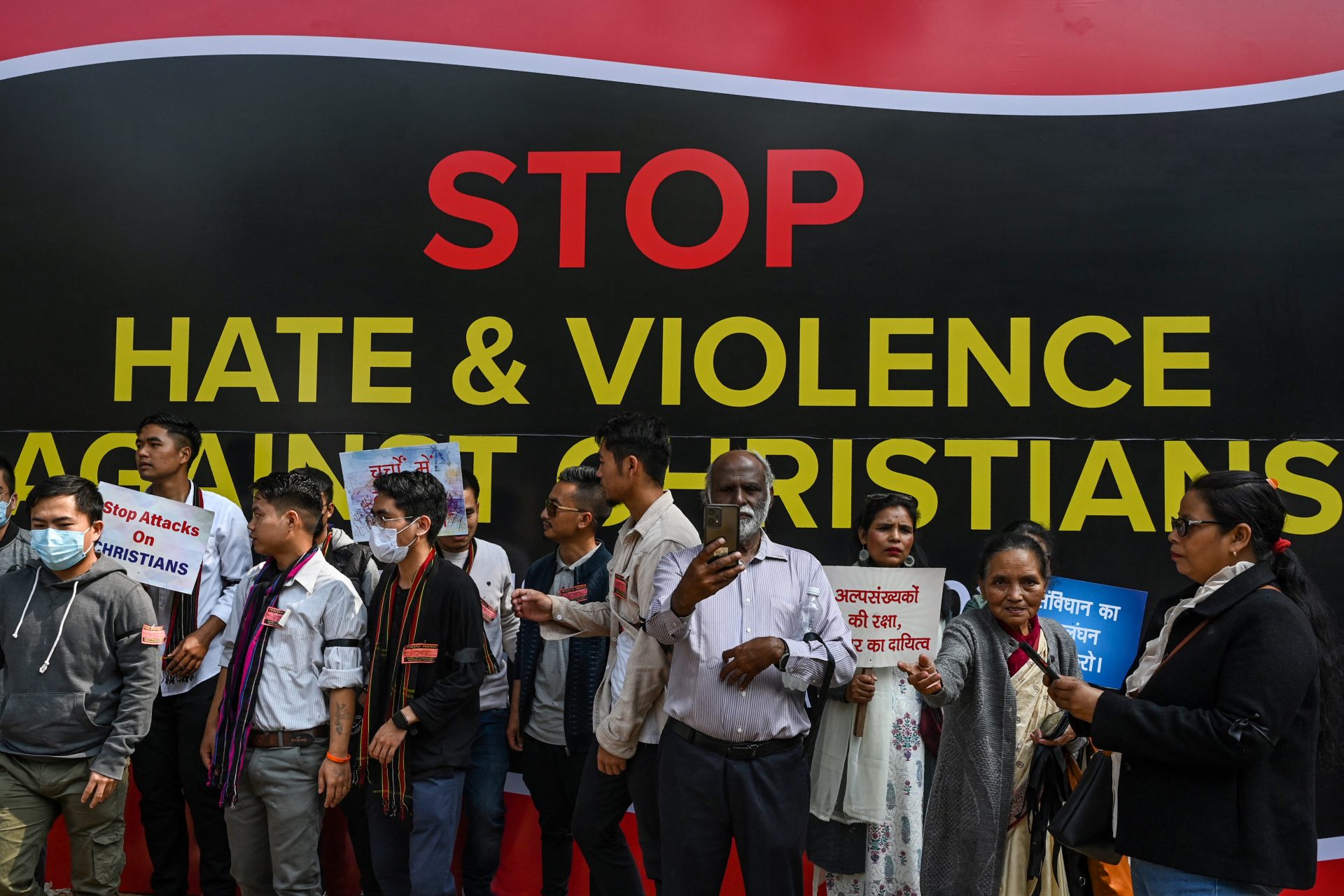India has seen a rise in hate crimes against Christians, with 525 incidents, 520 arrests on false conversion charges, and 54 cases of ostracism recorded in 2023.
The troubling trend stands in stark contrast to the global praise India received for its “diversity” during the G20 Summit in New Delhi last weekend.
Ahead of the September 9-10 summit, Rishi Sunak, the Indian-origin Prime Minister of the United Kingdom, said India’s “scale, diversity, and extraordinary successes mean that it is the right country at the right time to hold the G20 Presidency.”
Christians in India, who are struggling to practice their faith in a hostile environment, have a different perspective.
A C Michael, national coordinator of the United Christian Forum (UCF), an ecumenical persecution watchdog, said that “unity in diversity appears elusive” for them.
With an average of 2.5 hate crimes occurring daily this year, violence against Christians has been reported in 23 states across India.
Uttar Pradesh leads with 211 incidents, followed by Chhattisgarh with 118 and Haryana with 39, according to the UCF.
The UCF also highlights that 13 districts in the country have become increasingly perilous for practicing one’s faith.
Christians in Bastar district, in central Chhattisgarh state, are particularly vulnerable, with 51 incidents documented against them.
Even the capital city, New Delhi, is not immune. The capital region reported four hate crimes, involving disruptions of prayer meetings by religious extremist groups who assaulted pastors and attendees, coercing them to halt their practices.
Christians not only face violence but also ostracism, with at least 54 cases primarily reported in Chhattisgarh and eastern Jharkhand states.
This exclusion often involves denying victims access to basic resources such as village water sources and common roads.
In some cases, victims are prevented from harvesting their own crops, leading to adverse economic consequences.
In just 212 days of 2023, the tally of hate crimes has exceeded 500. This number would have more than doubled had the details of the Manipur violence been included, according to Michael.
Media reports indicated that since May 3, 2023, over 300 churches of various denominations have been destroyed, nearly 200 people killed, and over 54,000 displaced.
The month of June witnessed the highest number of incidents at 89, followed by July (80), August (68), March (66), February (63), January (62), May (50), and April (47).
Perpetrators of violence are often mobs from dominant faith groups, supported by those in positions of power.
They not only launch physical attacks but also facilitate the arrest of Christians attending prayer meetings on false charges of conversion, resulting in 520 faithful individuals being incarcerated, according to Michael.
The UCF reports a sharp increase in incidents of violence against Christians since 2014, coinciding with the rule of the pro-Hindu Bharatiya Janata Party (BJP).
In that year, 147 incidents were recorded, rising to 177 in 2015, 208 in 2016, 240 in 2017, 292 in 2018, and 328 in 2019.
There was a temporary dip in 2020 due to the pandemic-induced lockdown, with 279 incidents. However, the subsequent year witnessed 505 cases, followed by 599 in the year that followed.
Meanwhile, the Supreme Court has declined to entertain a petition seeking direction to the federal government to take measures to curb fraudulent religious conversions in the country.
